Movie Review: The Crimes of Grindelwald
Living up to its title, the film shows the beginning of an uprise from Grindelwald.
The newest addition to the wizarding world and sequel to Fantastic Beasts and Where to Find Them hit theaters November 16. Although The Crimes of Grindelwald was better than its prequel, it still did not impress as much as I had hoped for. Overall, the film was a bit messy in its plot reveals and major concepts, but delivered in its emotional aspects.
The Crimes of Grindelwald is the second of a five part series that explores what happened before Harry Potter. Although these films are not based off books like the famous series, J. K. Rowling writes the screenplays. The series is set in the 1920s – the time when the previous dark wizard before Voldemort, Gellert Grindelwald, was at-large.
The film opens with a shot of Grindelwald in prison after finally being captured, where he is about to be transferred to the Ministry of Magic in London. As expected, he escapes and the audience gets their first look at just how crazy and ruthless Grindelwald is. After not seeing much action from him in Fantastic Beasts, Grindelwald shows his sickeningly evil personality and unforgiving nature. This opening scene was dramatic, full of action, and visually interesting with each added detail.
The film then proceeds to catch up with Newt, the main protagonist from the previous film. He is at the Ministry of Magic, trying to lift his international travel ban after all of the mishap in New York. After refusing to help the ministry with a job, Newt is told he has to pick a side eventually, as he cannot be on his own forever. This was a nice way to meet back up with his socially awkward personality and independent spirit, and was a solid beginning to show how much he personally grows throughout the film.
Fantastic Beasts did not have a good plot, in my opinion. It was mostly just set up for another film, and was used to establish characters and background. From what I could gather from the trailers, I was looking forward to more action and a more exciting plot from The Crimes of Grindelwald. However, I was let down. As the movie progresses, it slows down a lot from its initial excitement. It focuses more on character background and making unnecessary connections rather than creating a good plot. So many characters are now apparently related that it feels unrealistic, and I got all the family tree information I did not really need to know from this film. There were almost too many plot reveals, and all were rushed and confusing. The backstory should have already been established, but the film is still focusing on these details instead of anything else.
The final action scene was not as interesting as I would have hoped for. It was mildly triumphant but mostly anticlimactic. It left me asking myself, “Wait, was that it?” Just as things started to pick up they died back down, purely to allow for more setup for the next installment of the franchise. Both Fantastic Beasts movies are all building up towards something, and I hope that all of this setup will be worth it in the end. However, this franchise needs to stop being a backstory and become, simply, a story.
What the film lacks in plot, it makes up for in character development and emotional appeal. Despite having a little too much backstory, getting to know and understand the characters has been one of my favorite elements of the Fantastic Beasts series.
Newt Scamander, played once again by Eddie Redmayne, is by far one of my favorite characters in the wizarding world. He continues to be compassionate towards, not only new creatures, but new people, yet never loses his quirky personality. His independent spirit, compassion, and social awkwardness makes him uniquely complex. In a scene where he begins to track down Tina with the help of his niffler, Redmayne brings back all the awkward, animal-loving nerdiness I came to know and love from the first film. Throughout the movie, Newt comes to find his place and his side, and I thought his character development throughout this movie was very well done. His relationship with Tina also became more defined, and his struggle to find the right words to say to her created an uncomfortable, yet sweet, tension. Newt tends to view the world differently, saying Tina’s eyes “were like salamander’s,” and watching him learn to embrace his perspective throughout the movie made me appreciate Newt as a person even more.
I was disappointed with the actors’ performances for Queenie Goldstein, Tina Goldstein, and Jacob Kowalski. Although the characters were portrayed by the same people, they seemed like completely different characters. I understand that they change a lot throughout the movie, but small details in their personalities and the tones of their voices made them feel unfamiliar. I felt like Tina’s role is less important than in the first film, and her story arc was not very interesting. Bold choices were made with Queenie and Jacob’s relationship, and both had to make the choice to either risk everything for love or protect the other. At this time, relationships between a wizard or witch and muggle were considered taboo, and the film reflects choices different types of couples have had to make throughout history. The Crimes of Grindelwald has countless parallels to historical ideas, and they bring interesting lessons with them throughout the story.
Lita Lestrange was the most unexpected newcomer in the film. Unlike all the Lestranges known from the Harry Potter series, she is more reserved, emotional, and kind. Her time at Hogwarts reminded me of Snape’s time at Hogwarts as a student, in the ways she was misunderstood and therefore taunted by others. I appreciated her unique actions and choices made throughout the movie. She was also relatable in the sense that she feels a lot of regret towards her past. A mistake Lita made as a child haunts her well into her adult life. The Crimes of Grindelwald highlights her guilt and shame from her actions; as she tells Newt, “You never met a monster you couldn’t love.” Here, she is referring to herself as the monster, showing how she views her self-worth since the event. Her backstory was the most intriguing and important for me, and it will resonate with a lot of people who will watch the film.
Credence, the emotionally unstable obscurial who miraculously survived Fantastic Beasts, appeared more mature and under control when seen in this film. I liked seeing his character growth from being so reckless at the end of the first movie, but it almost seemed like he had become too normal and grown-up since seen last. He is on a quest for his origin throughout The Crimes of Grindelwald, and refuses to stop until he finds his true identity. Although his character had some moments where he seemed like too much of an adult, I thought his personal choices and motivations were well thought through.
Jude Law makes his appearance as the third person to play Albus Dumbledore in the wizarding world, and his young self shows off the same nature in how he interacts with others. His cocky yet compassionate personality continues to show through as he does things only according to his agenda, and no one else’s. Similar to how he is seen later in relation to Voldemort, he is viewed as a threat both by the enemy and the government, mainly due to his immense power. I liked the way he mentored different characters throughout the film, just as seen in his later years as headmaster.
Grindelwald was chilling. He is the type of character that puts the entire theater on edge whenever he enters the room. From the way his hair changes throughout the movie to his crazed eyes and intense expressions, he has become one of my favorite antagonists in film. Grindelwald continues his manipulative tactics to get what he wants, just as he did with Credence in Fantastic Beasts, holding fear over everyone’s heads. His ideas are similar to Voldemort’s, believing pure-blood wizards should rise above all else. However, rather than having Voldemort’s composure, he is more reckless and unpredictable.
Many fans waited with anticipation to see how the relationship between Grindelwald and Dumbledore would be explored throughout the series, as J. K. Rowling has confirmed that Dumbledore once fell in love with Grindelwald. Some people were upset to hear that their relationship would not be in the film, believing this is because many filmmakers are hesitant to put homosexual couples into blockbuster films. However, I think the right elements of their feelings towards each other were shown, as splitting the two up and showing them as enemies fits the timeline of the whole story better. The relationship was also not completely ignored as some had expected. When questioned about their relationship from years ago, Dumbledore said they were “closer than brothers.” Grindelwald also advocates for wizards to be free to live and free to love. Since both are now on opposite sides and are immovable from what they believe in, it is unclear how they will interact in the future, but the subtle elements recognizing the past were well thought-out.
This film was much darker in its themes than its first installment, similar to both parts of Harry Potter and the Deathly Hallows. The plot shows different characters alone, breaking them apart to show their most vulnerable traits. Tensions rise as characters disagree on their personal beliefs. Every character experiences some form of pain throughout the film, and each one was highlighted. The movie had gut-wrenching amounts of emotional despair as the audience watches every character experience loss, and was similar to The Last Jedi and Infinity War in this way. Within all of the different obstacles faced by characters, I believe there is something for everyone to relate to in the film. Even the strongest of characters show their emotional struggles. Dumbledore said, “Regret is my constant companion, do not let it become yours.” The Crimes of Grindelwald will tear your heart apart in more ways than one, and brought me new emotions I did not even know I had.
All of the CGI creatures were stunning; I felt each one was a unique work of art and imagination. The visuals with the zouwo – the lion-like, dragon-like creature – were especially impressive. The matagots, cat-like creatures in the French Ministry of Magic, were the only ones that I felt did not have the same amount of detail and complexity. The score fit perfectly with the action, and helped add drama and suspense as needed. The dark lighting fit the dark and somewhat creepy tone, and created a distinct feel to the movie. The filming was also quite different, as there were a lot more close-up facial shots and things to show subtle details. It felt very different from the first Fantastic Beasts movie, not only emotionally but visually too. I wish that there was more consistency between the two films as they are a part of the same franchise, but at the same time I like the creative choices made in The Crimes of Grindelwald.
If you are looking for something as flawless as the Harry Potter series, you will be disappointed. However, Fantastic Beasts and Where to Find Them is one of my favorite movies, not because of its plot but because of its characters. I will continue to enjoy this franchise for that reason, though it could be improved in so many ways. I intend to watch the film many more times to fully understand what happened, and I hope it will grow on me just as Fantastic Beasts did. I rate The Crimes of Grindelwald a three out of five stars, and believe it is worth the watch even though it is not the best. Although the themes and emotional aspects of the film were exceptional, an underwhelming plot climax and ending left me disappointed. I wonder when the franchise will stop lingering on set-up and move on to the actual action of the story. The film had good concepts for connecting characters, but took the connections out of proportion to the point where it was confusing and unnecessary. I believe it is worth the watch, despite its flaws. It explores so many different ideas, and is a visual work of art. There is something in this movie for everyone to experience, to learn from, and to relate to.
Your donation will support the student journalists of Fossil Ridge High School. Your contribution will allow us to purchase equipment and cover our annual website hosting costs.
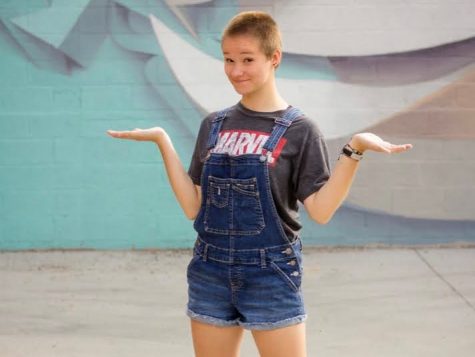
Co-Editor in Chief and senior Anna Henning is ecstatic to be entering her fourth year of journalism. Henning has grown up loving writing, and has taken every writing class she can. She really enjoyed taking Creative Writing freshman year, but Journalism II has always been her favorite class. Henning...



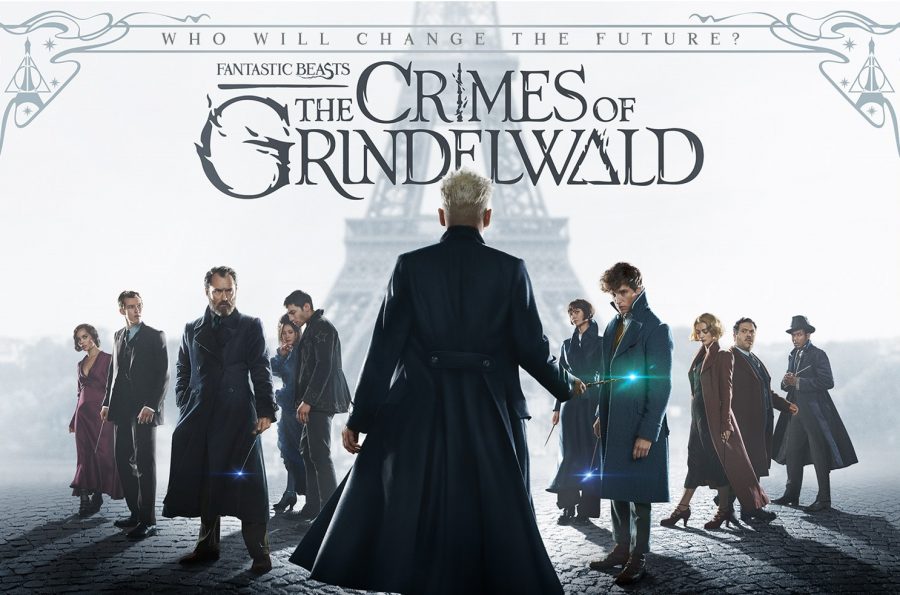
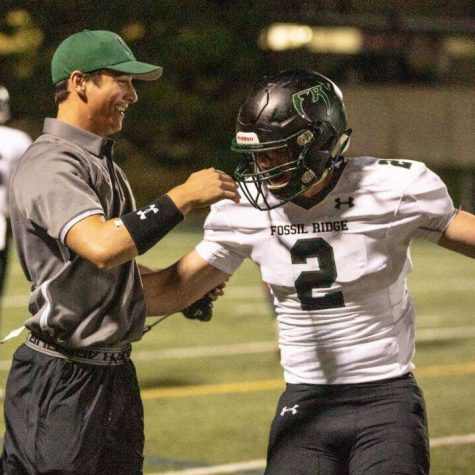


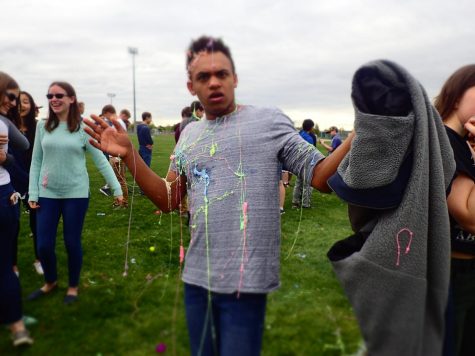
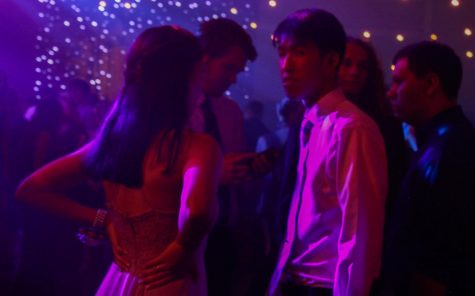
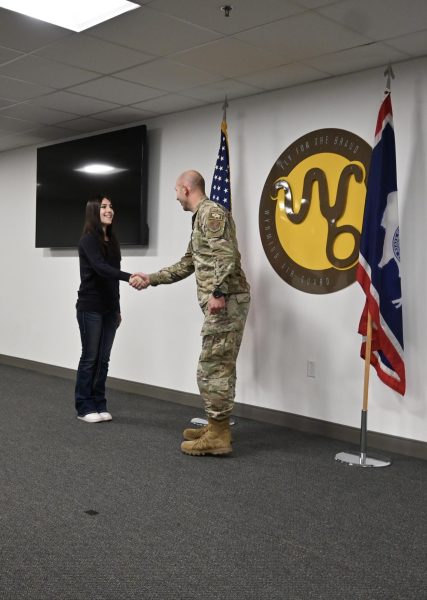

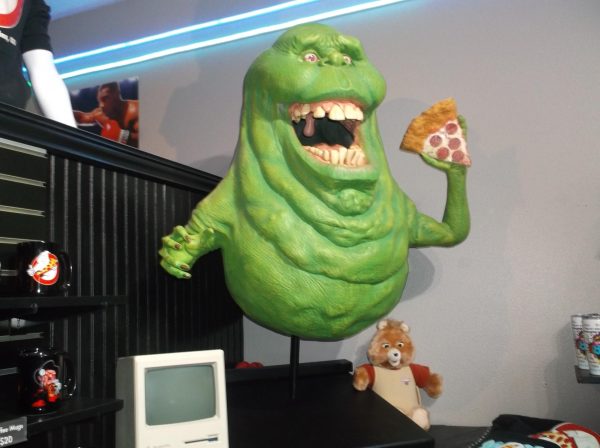
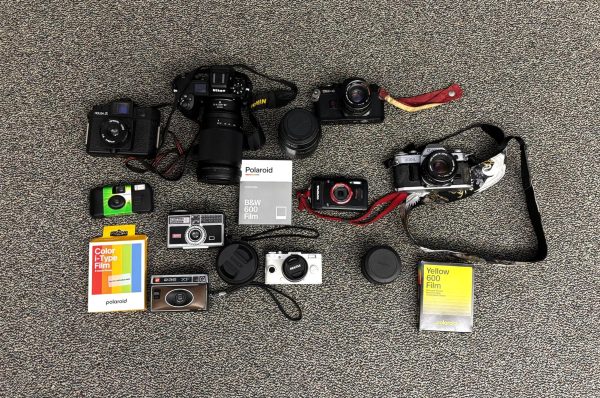

Serena Rose • Dec 10, 2018 at 5:34 pm
Really love that you gave such an in-depth analysis of this, because I’ve been unsure about seeing it or not. One typo in the second paragraph if you can find it. 🙂 Seems like this movie lives up to the low standards I had for it, but your descriptions of the character development have definitely made me more interested in seeing it. So, as a fellow Harry Potter fanatic, would you say it is worth my time and money to go to the theatre, or should I wait for the next installments and catch up at home?